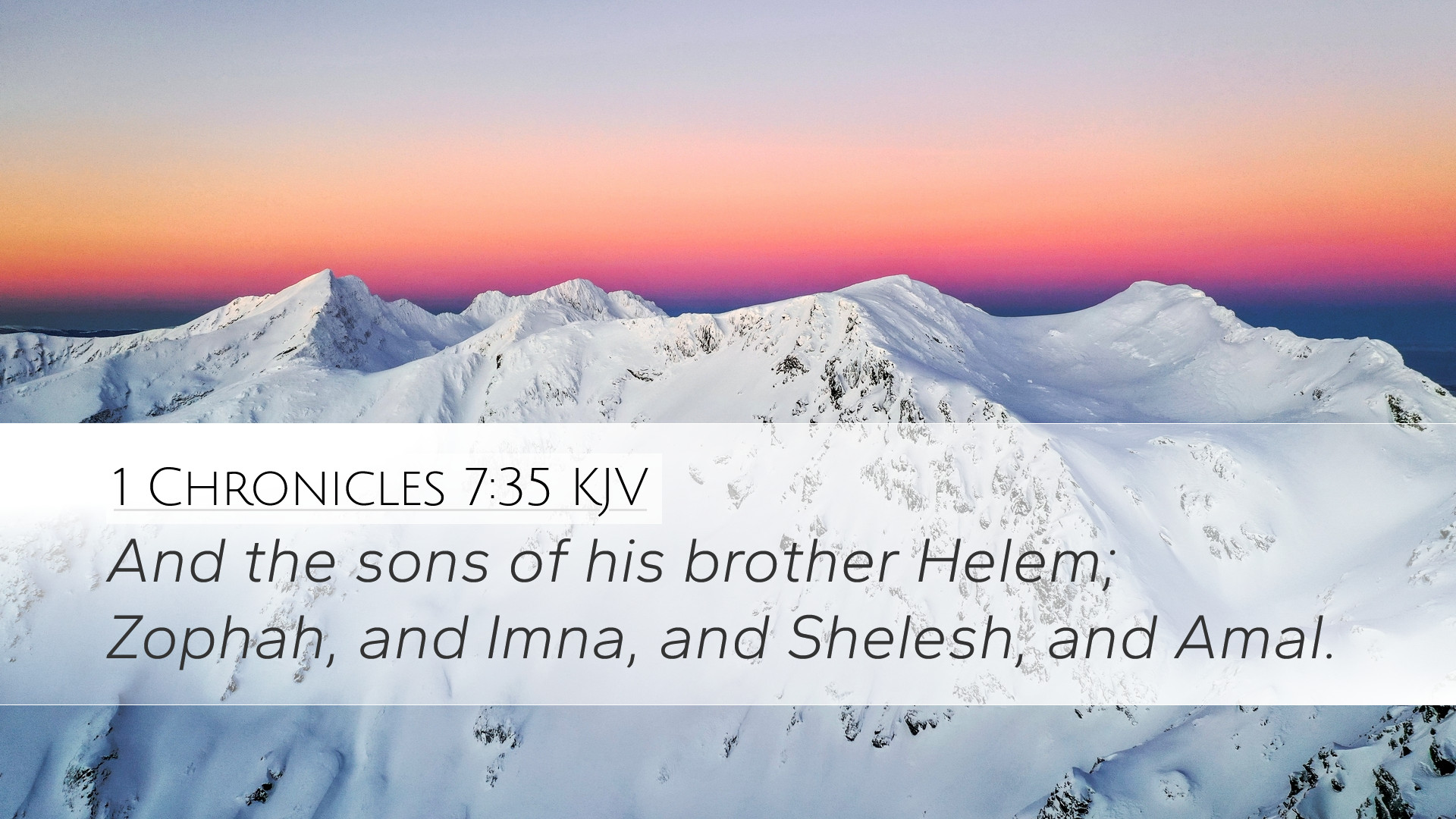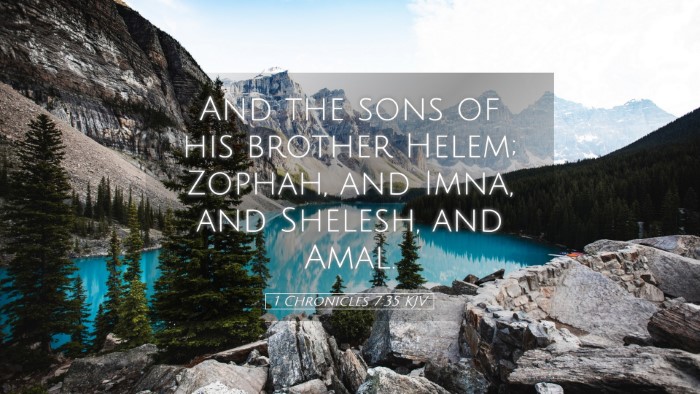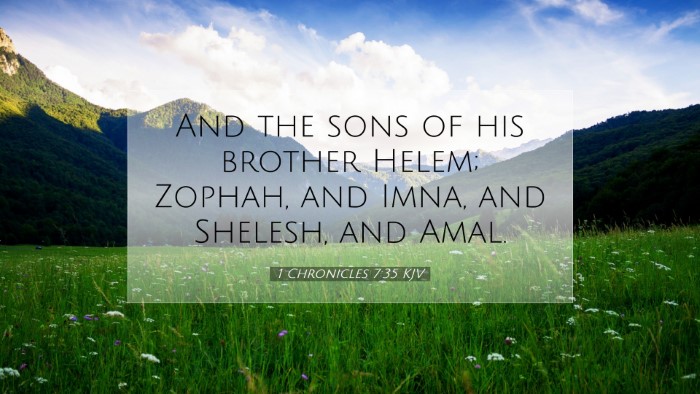Commentary on 1 Chronicles 7:35
Verse (1 Chronicles 7:35): "And the sons of Micah were, Shimeah the firstborn, and Jahzziah the second."
Introduction
This verse presents an important genealogical detail within the context of the tribe of Levi, particularly focusing on the descendants of Micah. Here we will examine the broader implications of this lineage, drawing from insights provided by esteemed biblical commentators such as Matthew Henry, Albert Barnes, and Adam Clarke.
Historical Context
1 Chronicles is a book rich in genealogies, setting forth the heritage and lineage of the Israelites. The inclusion of such verses is not merely for record-keeping; rather, they serve to ground the people of God in their identity, reminding them of God's promises and faithfulness through generations.
Commentary Insights
Matthew Henry’s Analysis
Matthew Henry emphasizes the significance of genealogies in the context of the Levitical priesthood. He notes that the descendants of Aaron and Levi played a central role in worship and the sacrificial system established under the Mosaic law. Henry points out that chronicles like these serve to remind the faithful of their privileges and responsibilities:
- Spiritual Inheritance: Each name carries the weight of spiritual heritage, underscoring the vital link between historical figures and the worship practices that informed the community.
- Familial Responsibility: As the families mentioned here were tasked with duties in the temple, understanding their lineage is pivotal for recognizing the roles each would play in Israel's corporate worship.
Albert Barnes’ Contributions
Albert Barnes expands on the meaning of the specific names mentioned, particularly focusing on "Shimeah" and "Jahzziah." His commentary notes that names in the Hebrew culture often carry deep meanings, reflecting the character and destiny of the individual:
- Shimeah: Often translated as "hearing," Shimeah represents the notion of being attentive to God’s voice, which is essential for a leader in worship.
- Jahzziah: This name can be taken to mean "the Lord has seen," suggesting divine oversight and providence, crucial themes for the Levites’ duties as mediators between God and the people.
Adam Clarke’s Perspective
Adam Clarke provides a detailed examination of the textual implications, noting that the records in Chronicles were particularly relevant to the returning exiles. He argues that by listing these names, the chronicler validated the Levitical priesthood in the eyes of the post-exilic community, showing God's continued faithfulness:
- Restoration of Worship: Clarke points out the importance of establishing proper worship after the exile. The specific mention of Micah's sons connects the community back to their roots and re-establishes the significance of their roles in worship.
- Community Identity: Emphasizing the importance of heritage, Clarke explains that remembering the foundational families helps reinforce the community's identity and coherence as God’s chosen people.
Theological Implications
The examination of 1 Chronicles 7:35 brings to light several theological applications that are necessary for pastors, theologians, and scholars:
- Identity in Christ: Just as the Israelites were reminded of their lineage and identity, believers today can find reassurance in their status as children of God, heirs to His promises.
- God’s Faithfulness: The unbroken line of Micah's descendants points to God's persistent faithfulness across generations; it provides a model for faith that transcends circumstances.
- Role of the Church: As the modern embodiment of the priesthood, the church today is reminded through the significance of these genealogical records of its own role in facilitating worship and serving as mediators of grace.
Conclusion
1 Chronicles 7:35, while concise, is laden with profound significance that reflects the narrative of God’s chosen people. The insights from Matthew Henry, Albert Barnes, and Adam Clarke provide a rich tapestry of understanding that is crucial for both the historical analysis of Israel and for theological reflection within the church today. By examining the specifics of lineage and their meanings, we not only delve into Israel’s past but also draw vital connections to our present faith journey in Christ.


